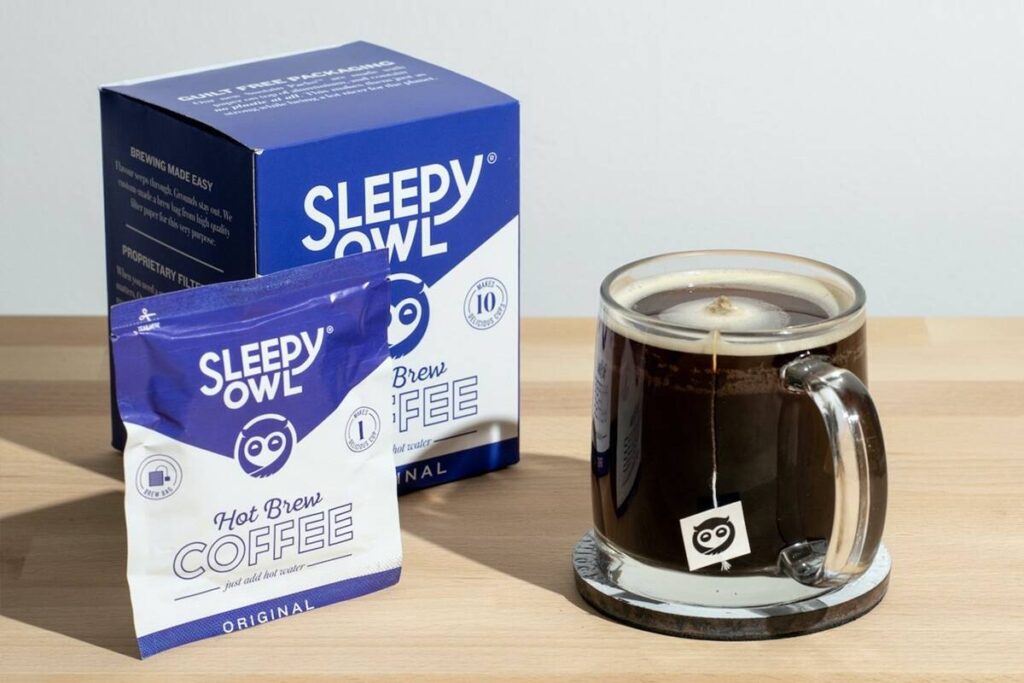A variety of D2C coffee brands have entered the market

There is a coffee revolution brewing in India. Be it the instant kind or ones that need specific brewing techniques, new-age direct-to-consumer coffee brands are tempting consumers to turn into baristas at home. Sleepy Owl, Third Wave Roasters, VS Mani & Co., Black Baza Coffee and Araku Coffee are some of the brands vying for a slice of the Rs 2,200 crore packaged coffee market, which is dominated by coffee labels from big FMCG players, namely Nestle’s Nescafe, HUL’s Bru and Tata Coffee Grand.
Blending in
According to industry estimates, 80% of India’s coffee consumption comes from south India. Coffee chains such as Café Coffee Day, Barista and, most recently, Starbucks, have been instrumental in giving the coffee culture a facelift in India, a predominantly tea drinking nation.
“Coffee is moving from being exclusively south India’s habit to having an urban appeal. Coffee shops are now spread across tier I and II cities, and are places for youth and young professionals to meet and work,” says Alagu Balaraman, MD – CGN & Associates India.
Sleepy Owl’s co-founder Ajai Thandi says that the primary intention for the company is to replicate the experience and flavour of barista-made coffee at home, sans equipment. This direct-to-consumer coffee brand has introduced coffee bags that can be used just like tea bags to prepare a hot cup of black coffee. It also has a range of cold brew sachets that can be dunked in a jug of water and brewed overnight.
While new-age roasters offer a range of blends and variations meant for specific kinds of coffee, it is the instant variety that offers scale. According to Mintel India, in 2020, 54% of the total coffee launches in India were in the instant/soluble segment. Mastering the instant coffee variant lets brands reach a wider audience. This is why GD Prasad, co-founder, VS Mani & Co., and VP, Dentsu Webchutney, started off by selling the instant coffee-chicory blend.
“There is an exceedingly small segment of consumers that likes to brew its own coffee. These could be enthusiasts who have a French press or a moka pot, and are experimenting. Instant varieties make more business sense,” he says. VS Mani & Co.’s 100 gm instant coffee powder has a repeat cycle of two-to-three weeks. Prasad expects the filter coffee purchase cycle to be longer.
Coffee-nomics
Black Baza Coffee lays emphasis on sourcing coffee responsibly and ethically, and targets coffee enthusiasts who share similar values. Until March 2020, it earned revenue from both B2B and B2C verticals. When the HoReCa segment came to a standstill, its B2B revenue stream dried up. “We had a 60-40 ratio between B2B and B2C revenue; however, B2C is now the predominant business for us, contributing 90% of the revenue,” informs Arshiya Urveeja Bose, founder, Black Baza Coffee.
Sleepy Owl was earning about 20-30% of its revenue from B2B sales to airlines, movie theatres, offices, hotels and restaurants. Thandi says B2B sales aided in sampling and brand building. When normalcy resumes, he expects the proportion to remain the same.
A few coffee roasters follow a café-plus-roastery model. For instance, Third Wave Coffee Roasters, which sells several products directly to consumers, including equipment, has 10 cafés in Bengaluru and two each in Pune and Hyderabad. Blue Tokai has several cafés across the country. “Cafés offer high margin on a single cup of coffee,” says Balaraman. For instance, a single cup of a Pour Over at Blue Tokai costs Rs 170, while the company’s Easy Pour coffee sachet costs Rs 40 per sachet.
Each of these brands have subscription options. “These are mainly for loyalists who want to have a steady flow of coffee. A monthly subscription of five sachets of our cold brew costs Rs 450. We are working on setting up our subscription back end to make it more customisable,” says Thandi.
source: http://www.financialexpress.com / Financial Express / Home> Brand Wagon / by Venkata Susmita Biswas / January 25th, 2021

